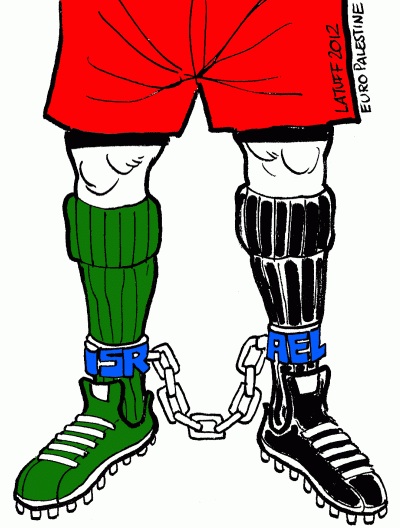The Rocky Road to Globalization
Lucy P. Marcus writes: The arrest of FIFA executives on a raft of fraud and corruption charges has been front-page news in recent days. But the charges brought by the Swiss and American authorities focus on bribery and embezzlement, and do not address another egregious injustice: the treatment of the migrant workers in Qatar who are building the stadiums for the 2022 FIFA Football World Cup.
Amnesty International recently released a report on the abysmal conditions in Qatar. The workers are subject to unsafe construction sites, exploitative recruitment agencies, and little recourse to formal justice. Recently, Nepal’s labor minister publicly spoke out about the government of Qatar not allowing his country’s migrant workers to return home to mourn relatives who died in the April 2015 earthquake.
Beyond these examples, there have been many others. In technology, Apple and Foxconn have faced criticism for working conditions at their Chinese production sites. Even educational institutions, such as New York University’s new campus in Abu Dhabi, have been tainted by episodes of workplace exploitation and abuse.
The larger and more complex the company, the harder it is to track all of the firms with which it does business, the firms that they then subcontract to, and so on. Companies, not surprisingly, say that their responsibility extends only so far. But that is not an answer; it is a choice. Organizations can decide to extend their reach. They can even decide that they want to know the full provenance of all materials and components in their products, and that they will hold their extended suppliers to account.
In this sense, the larger the company, the greater its responsibility. But larger companies also have a larger ability to become a force for good, both locally and globally. If a company the size of US retailer Walmart decides that it will not allow wasteful packaging, its purchasing power will lead to changes in packaging for the entire retail sector. The same is true of wages and labor practices.
When sponsors like Coca-Cola or Adidas believe that their reputations will be tarnished by association with an organization engaged in corrupt practices like FIFA, they will take their brand-management dollars elsewhere.
Companies are made up of people. Paying fair wages, adopting ethical sourcing practices, and upholding the dignity of workers should be a part of the way they calculate their success. Those who disconnect themselves from the fate of others, who act without conscience or a sense of right and wrong, and who spurn ordinary human decency have no place running organizations or sitting on company boards. The things that make us happy must not come at an unforgivably high price.

